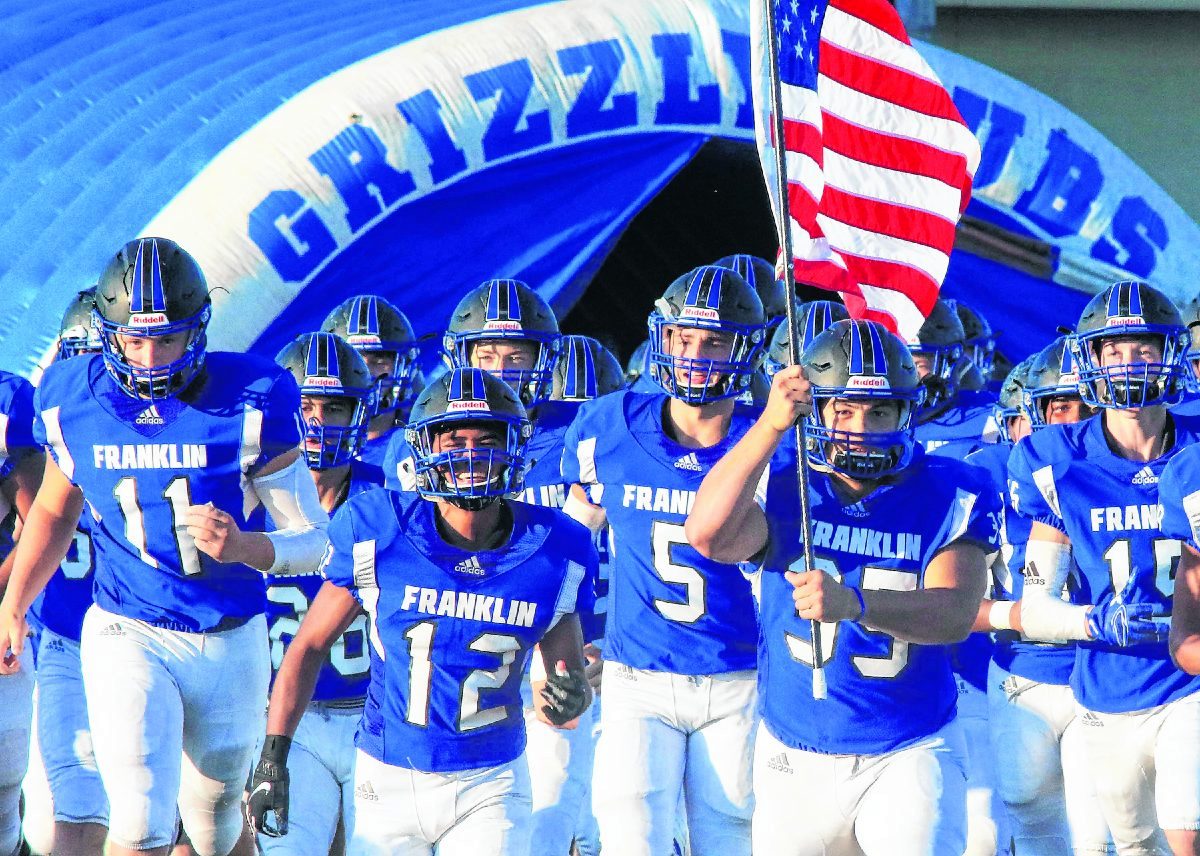An ancient quote, often paraphrased and misattributed, tells us that justice will not be served until those who are unaffected are as outraged as those who are.
Racism and police brutality against black Americans may not have a firsthand effect on white men like Chris Coll, but the Franklin football coach still has very strong feelings about the state of racial imbalance in this country.
Coll recalls hearing racial slurs directed at his roommate during his days as a player at Franklin College — just one incident during a time that helped awaken him to what the world was really like for people of color. Though he grew up in a predominantly white area, Coll’s interactions with people of other races during his football playing and coaching days — and more recently, with his biracial nieces — have shaped his worldview.
[sc:text-divider text-divider-title=”Story continues below gallery” ]
He’s hoping it will do the same for his current players.
Even if a white person can’t fully understand the black life experience, Coll says, being able to at least empathize is important.
“This whole thing to me, a lot of it, comes down to perspective,” he said. “I think as white Americans, we tend to judge and pass judgment based on our own personal experience and perspective, which is limiting and sometimes just outright wrong.
“The reality is the African-American experience, from post-Civil War to today, is not the same experience, not the same perspective, but we have a tendency not to want to see that as a reality.”
Reality, though, has been in plain view this year more so than perhaps at any other time in our lifetimes. With the recent killings of Ahmaud Arbery and George Floyd — the latter by a Minneapolis police officer — captured on video in broad daylight, it has become much more difficult for people to ignore the systemic racism that still exists in American society.
Protests have been taking place nationwide and around the world since Floyd’s death in late May, not only in major cities but also in more rural settings such as Alaska. Two of Coll’s sons, Cody and Clayton, recently participated in a Black Lives Matter march in Muncie, where Clayton is a rising sophomore linebacker at Ball State.
“As a father, that was important to me that they felt strongly enough to take part in something bigger than themselves,” Chris Coll said.
The COVID-19 pandemic has made it difficult for coaches to hold in-depth teamwide discussions on the topic, but it’s likely to be a subject that comes up when teams can start working out together next month.
County coaches have at least touched on it in the limited talks that have taken place in online meetings, though. Last week, Whiteland coach Darrin Fisher shared his thoughts on what one person can do to effect change for the better on his team, in school and around town. Greenwood’s Mike Campbell said he encouraged his players “to be supportive and respectful of each other’s opinions,” and to stay safe if they were planning to take part in any protests.
Center Grove coach Eric Moore said he hasn’t heard of any race-related discussions taking place during the Trojans’ online position group meetings, but he notes that respecting others has been a constant team theme over the years. Many of Center Grove’s MIC opponents have majority-minority football rosters.
“We respect everyone and don’t talk down or talk trash to anyone,” Moore said. “It’s way too time consuming and it will wear you out. We love each other and we never have that sense of hatred toward the other teams; it’s just too exhausting. So with that, I hope they take that trait to the other aspects of their lives and build character.”
Sports tend to provide young people with more opportunities to interact with peers from different backgrounds, which in turn tends to cultivate a greater mutual understanding. Many college and pro coaches from around the country have expressed in recent weeks that they wish the world could be more like a locker room — and while that statement may sound a bit cliché, Chris Coll does believe there is some truth to it.
“In general, the team sport dynamic, because of the significance placed on being able to contribute, doing your job, whatever it is, I think helps move past some of the racial differences or cultural differences,” he said. “Because there is a focus or priority put on guys coming together — or girls, if you’re talking about a girls team — for the common good. And we don’t always see that in the overall school population, or even within the community, but a team sport has that dynamic inherently built into it.”
Even in Johnson County, where all of the high schools are at least 80 percent white, the football teams at the larger high schools tend to be at least a little more diverse. Chris Coll sees that as an opportunity for the players on his team to cultivate a greater understanding of what teammates of different backgrounds go through — just as he did more than 30 years ago.
“Obviously, we’re a predominantly white program,” Coll said, “but we do have enough minority athletes participating in our program that that’s definitely something I want to address. I want to know the climate and culture within our own program, and that’s where I think the discussions come in — because sometimes that stuff is hidden under the surface, and I don’t want that for our minority kids, and I don’t want our white kids to leave our program without understanding that.”





